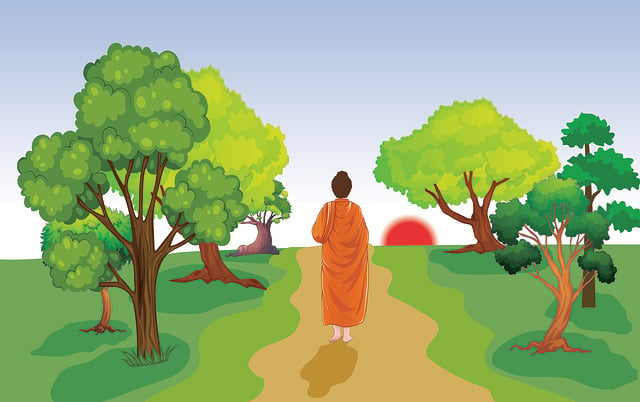Stoicism is an ancient Greek philosophy founded in the early 3rd century BCE. The Stoic philosophy emphasizes the development of self-control and inner strength as a means of achieving a life of tranquility and happiness.
One of the core ideas of Stoicism is that we should focus on what is within our control and let go of what is not. This means that we should not become attached to external events or outcomes, but instead focus on cultivating our own character and virtues.
Stoics also believed that we should accept the natural order of the universe, and that everything that happens is part of a larger plan or purpose. They believed that by accepting this order, we could develop a sense of inner peace and serenity.
Stoicism has had a significant influence on Western philosophy, and its ideas continue to be studied and applied today in fields such as psychology, self-help, and leadership development.
“Obstacle is the Way” is a concept that originated from the philosophy of Stoicism, which is an ancient Greek philosophy that emphasizes the importance of living in accordance with reason, accepting what happens in life, and focusing on the present moment.
In the context of “Obstacle is the Way,” the idea is that obstacles and challenges in life are not things to be avoided or feared, but rather opportunities to learn, grow, and become stronger.
This philosophy teaches that we should face our obstacles with courage, persistence, and creativity, and that by doing so, we can transform our setbacks into opportunities for success.
In “Obstacle is the Way,” Ryan Holiday weaves together insights from history, philosophy, and contemporary life to illustrate the principles of Stoicism and how they can be applied in modern life. Through real-life examples of individuals who have overcome adversity, the book shows how the obstacles we face can be opportunities for growth and success.
The book is divided into three sections: Perception, Action, and Will. The Perception section emphasizes the importance of changing our perception of obstacles and viewing them as opportunities for growth. It also discusses the value of accepting the present moment and not becoming attached to external outcomes.
The Action section is about taking proactive steps to overcome obstacles and achieve our goals. It emphasizes the importance of persistence, creativity, and resourcefulness in finding solutions to problems. The Will section is about developing the inner strength and resilience needed to face obstacles with courage and persistence. It explores the importance of self-discipline, perseverance, and a growth mindset in achieving success and fulfillment.
Overall, “Obstacle is the Way” is a powerful and inspiring book that offers a timeless message about the value of facing our obstacles with courage and resilience. It shows how the principles of Stoicism can be applied in modern life to help us overcome challenges and achieve our goals. It is a book that has resonated with many readers, from business leaders to athletes, and has become a modern classic on the subject of overcoming adversity.
Here are 10 key takeaways from the book:
- Obstacles are opportunities: The book’s central idea is that obstacles and challenges are not to be feared or avoided, but rather embraced as opportunities for growth and learning.
- Perception is key: The way we perceive obstacles determines how we respond to them. By changing our perception and viewing obstacles as challenges to be overcome, we can develop a more positive and proactive mindset.
- Embrace the present moment: Stoicism emphasizes the importance of focusing on the present moment and accepting what is happening right now. By doing so, we can reduce our stress and anxiety and become more effective problem-solvers.
- Take action: Rather than waiting for things to happen, we should take proactive steps to overcome obstacles and achieve our goals. Action is the key to making progress.
- Cultivate resilience: Resilience is the ability to bounce back from setbacks and failures. By developing resilience through practice and experience, we can become more effective at overcoming obstacles and adapting to change.
- Practice self-discipline: Self-discipline is the ability to control our thoughts, emotions, and actions in order to achieve our goals. It is a key component of success and can be developed through practice and habit.
- Turn obstacles into advantages: By reframing our obstacles as opportunities, we can turn them into advantages. For example, a setback can be an opportunity to learn and grow.
- Persevere in the face of adversity: Perseverance is the ability to keep going in the face of adversity. By developing a strong sense of purpose and a clear vision of our goals, we can maintain our motivation and overcome obstacles.
- Learn from failure: Failure is an inevitable part of life, but it can also be a valuable learning experience. By reflecting on our failures and mistakes, we can gain insights that help us improve and grow.
- Embrace a growth mindset: A growth mindset is the belief that we can always learn and grow, no matter our circumstances. By embracing a growth mindset, we can develop a more positive and resilient attitude towards life’s challenges.












